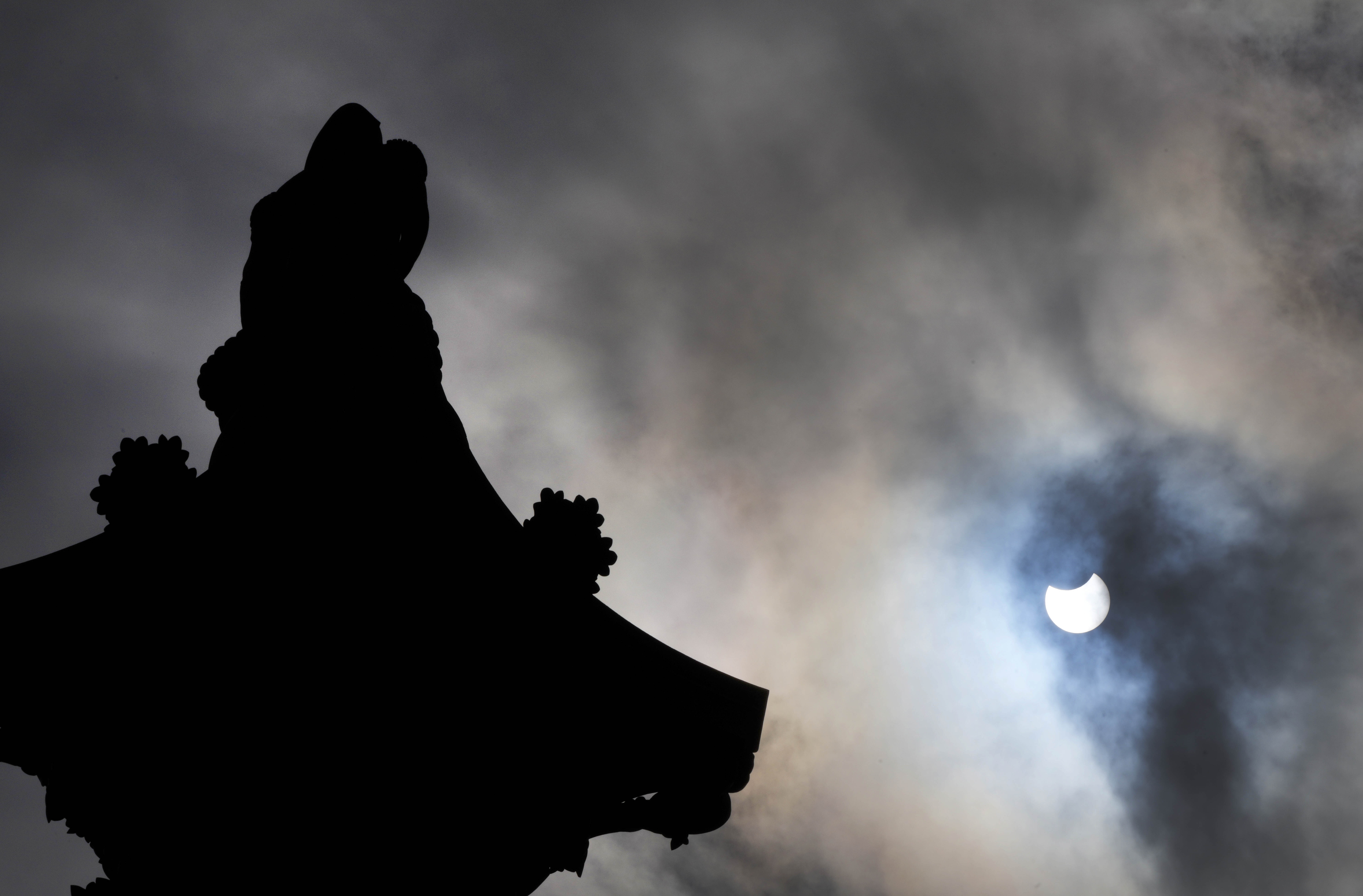It’s eclipse season and this is the last solar eclipse of the year that will be visible in the UK.
Tomorrow, the new moon will orbit between the sun and the earth, causing a partial eclipse of the sun.
In the UK, this eclipse will be a partial solar eclipse, which means the sun’s light will not be completely blocked. Nowhere on Earth will see the sun be totally covered this year, according to the Royal Observatory Greenwich astronomers.
The solar eclipse is scheduled to take place on Tuesday, 25 October, beginning at 10.08 am and ending at 11.51 am. It will reach its ‘maximum’ – the moment when the greatest amount of Sun is hidden – at 10.59 am.
The partial eclipse will start at 10.08 am BST in the UK, and last for around one hour 40 minutes.
However, take care to never look directly at the Sun during this time as this can cause serious eye damage or even blindness.
If you want to try to see the solar eclipse yourself, remember to use adequate eye protection.
To watch tomorrow’s solar eclipse:
- Check if your local astronomical society is hosting a solar eclipse event, as they will have many instruments specifically for solar viewing or telescopes that have been fitted with the right filters.
- If you can’t get out to these events and still want to look at the eclipse directly, you can purchase solar eclipse viewing glasses. Beware that sunglasses or 3D glasses will not protect your eyes.
- The safest and cheapest way to view the event is by pinhole projection. This is extremely safe as there is no need to look directly at the Sun and the display can be shared by a few people together.
How to make a pinhole projector?
- Make a hole in a piece of card.
- Hold the card up to the Sun, and hold a piece of paper behind the card.
- See the shape of the Sun projected onto the paper – a small version of the event!
Alternatively, you can watch a live stream of the eclipse from the comfort of your home.
Tomorrow’s partial eclipse will be visible from most of Europe, northern Africa, the Middle East, and western parts of Asia.
If you want to see a total solar eclipse in the UK, we’re afraid you’re going to have to wait until the year 2090!
Source: Read Full Article


